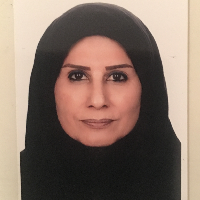Comparing the Effects of Emotion-Focused Couple Therapy and Choice Theory-Based Couple Therapy on Relationship Quality in Couples With Marital Conflicts
Family health and dynamics are the fundamental and productive core of society and are rooted in the couples’ health and wellbeing. Common complaints of couples include communication problems and the lack of emotional connection. The frequency of emotions, such as anxiety, distress, and anger leads to couples’ dissatisfaction and increased incidence of conflict. Marital quality consists of positive aspects, like support and satisfaction, and negative aspects, such as conflict and the odds of separation. Thus, a thoughtful focus on marital conflict and relationship quality based on human communication approaches can ultimately convey happiness to society. Therefore, the current study aimed to compare the effects of Emotion–Focused Couple Therapy (EFCT) and Choice Theory (CT)–based couple therapy on marital relationship quality.
This was a quasi–experimental study with a pretest–posttest–follow–up and a control group design. Of the couples referring to the Family Transplantation Counseling Center in Mashhad City, Iran, in the fall of 2016, 50 couples who scored ≥115 on the Questionnaire of Marital Conflicts (QMC) were considered. In a purposive manner, 30 volunteer couples were selected and randomly assigned to the experimental (EFCT & CT–based couple therapy) and control groups. The inclusion criteria of the study included reporting marital conflict based on the QMC, couple participation in 8 therapy sessions, a marriage duration of 2 to 10 years, the age range of 25 to 45 years, a minimum diploma education, living together while conducting this research, and providing a written informed consent form for participation in this research. The exclusion criteria of the study were having a chronic physical illness or severe psychiatric disorders; divorce or being on the verge of divorce; sexual dysfunction; extramarital affairs, and receiving simultaneous psychological treatment individually or in groups. The research instrument was the Perceived Relationship Quality Components (PRQC) Inventory (Fletcher et al., 2000). Therapeutic interventions included EFCT (Johnson, 2012) and CT–based couple therapy (Glasser & Glasser, 2010). Interventions were performed in pairs; for each pair, consisting of eight 90–minute weekly sessions, simultaneously. All study groups conducted pretest, posttest, and 2–month follow–up examinations. The control group also received the couple therapy interventions after the end of the study. The obtained data were analyzed using repeated–measures Analysis of Variance (ANOVA) and Tukey’s posthoc test in SPSS at the significance level of 0.05.
There was a significant difference in the mean scores of marital relationship quality between the intervention groups and the controls (p<0.001); however, there was no significant difference between the intervention groups in this respect (p=0.621). The mean scores of marital relationship quality were significantly different between pretest, posttest, and follow–up phases (p<0.001); However, no significant difference was observed between the posttest and follow–up scores of the study participants (p=0.113). In other words, the effects of both presented couple therapy interventions on improving the quality of couples' relationship remained in the long run (after two months). The mean±SD scores of couples’ relationship quality in posttest (116.95±3.74) and follow–up (115.35±4.61) phases were higher than that of the pretest step (101±9.73) in the EFCT group. Furthermore, the mean±SD scores of relationship quality in the posttest (115.45±7.99) and follow–up (113.95±10.49) phases in the CT–based couple therapy group were higher than that in the pretest step (94.90±8.91).
According to the obtained results, EFCT and CT–based couple therapy improved relationship quality in the studied couples with marital conflicts.
- حق عضویت دریافتی صرف حمایت از نشریات عضو و نگهداری، تکمیل و توسعه مگیران میشود.
- پرداخت حق اشتراک و دانلود مقالات اجازه بازنشر آن در سایر رسانههای چاپی و دیجیتال را به کاربر نمیدهد.



